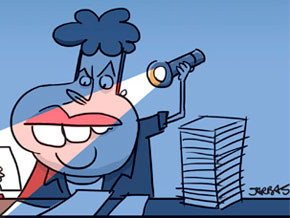The recognition of the rights of the LGBT population by the Brazilian State has been, from the beginning, a tortuous, non-linear process, directly linked to the mobilizations of the social movement and the result of countless conjunctural variables.
In the context of the judiciary, we gradually made progress until we achieved great achievements. The STF decision in May 2011 recognizing stable unions between people of the same sex is the main milestone. Legislative power has always been a problem. The National Congress does not evolve and does not approve any pro-LGBT laws, despite numerous attempts and debates.
In the executive, there was progress. Mainly in the federal government, between 2004 and 2010: Brazil Without Homophobia plan, conferences, policies, decrees, coordination and LGBT council. Some state governments followed this example and innovated, implementing actions to combat homophobia.
It turns out that this incipient process has lost momentum. And, after the 2010 elections (when Christian fundamentalism gained a new level of influence), the LGBT agenda was increasingly neglected.
Dilma's veto of the School without Homophobia program – which was accompanied by the now historic statement that her government "would not advertise sexual options" – inaugurates a new stage.
Since then, we have experienced a true LGBT "blackout" in the federal government's public policies. The II Conference was greatly discredited. In the first half of 2012 there are no actions or policies being implemented. Paralysis, inertia.
The Human Rights Secretariat tries to do its part, boosting Dial 100, preparing reports, drafting the II LGBT Plan. But, without effective support from Palácio do Planalto, it ends up making mistakes in an attempt to respond to the social movement. The empty factoid of launching "committees" against homophobia (which would be a civil society initiative) was the most obvious mistake. After all, what we want is public policy across the country, with councils, plans and coordination.
The fact is that, despite behind-the-scenes signals made in May of this year, Dilma does not welcome the LGBT movement, does not publicly address the issue of homophobia and does not commit to the launch of the II Plan, which should be institutionalized through decree presidential – in addition to having budgetary resources for its execution.
And if the federal government froze the LGBT agenda, what can we expect from state and municipal governments? What little there was of effective policy is disappearing. With very rare exceptions, such as in Rio de Janeiro, states and municipalities solemnly ignore the issue of combating homophobia.
In other words: in addition to freezing the LGBT agenda in the federal government, the president's conservative speech contributed to the devaluation of this issue throughout Brazil – which is even more serious in a context of the rise of religious fundamentalism.
Will there be a II National Plan to Combat Homophobia and Promote LGBT Rights? Will the federal government implement policies to promote LGBT citizenship? Will state and municipal governments overcome this inertia?
Will President Dilma address the issue of homophobia in public and announce her commitment to promoting equality?
What will the social movement do in the face of this adverse scenario?
Julian Rodrigues, is a member of the National LGBT Council (representing ABGLT), an activist with the Aliança Paulista LGBT and the CORSA-SP group. Cartoon by Jarbas.



